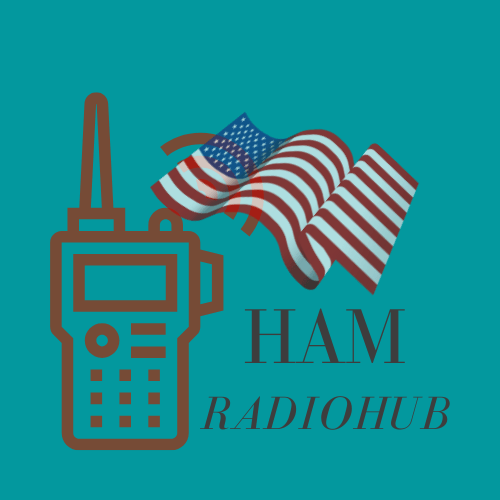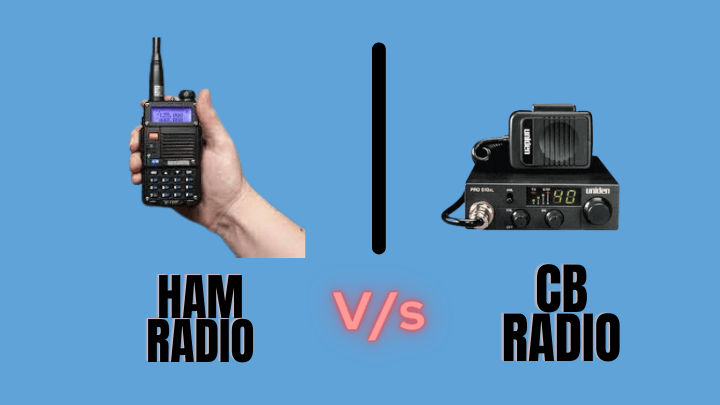HAM radio vs CB: Introduction
“HAM radio vs CB”, that’s the term we often encounter in our brains When it comes to radio communication. Ham radio and CB radio are two distinct communication systems with their own unique features and purposes. In this article, we will take a look at both communication systems and help you decide which one is right for you in 2025.
A CB Radio, also known as Citizen Band Radio is a short-range radio voice communications system that is used predominantly utilized by private people in automobiles, homes offices, homes, and other places in which the wireless phones service is not available.
On the other hand A HAM Radio or Amateur radio is a communication system purely based on hobby and used for non-commercial exchange of messages and conducting experiments by HAM radio aspirants. These HAM Radio operators also becomes handy when normal communication systems are down.
HAM radio vs CB: Licensing requirements
HAM Radio Licensing
First limitation you’ll face while wanting to operate Ham radio will be its license requirement. Ham radio operators must pass an exam to obtain a license. This license is issued by the FCC (Federal Communications Commission). So qualifying the license exam and obtaining license can prove to be a barrier for some people.
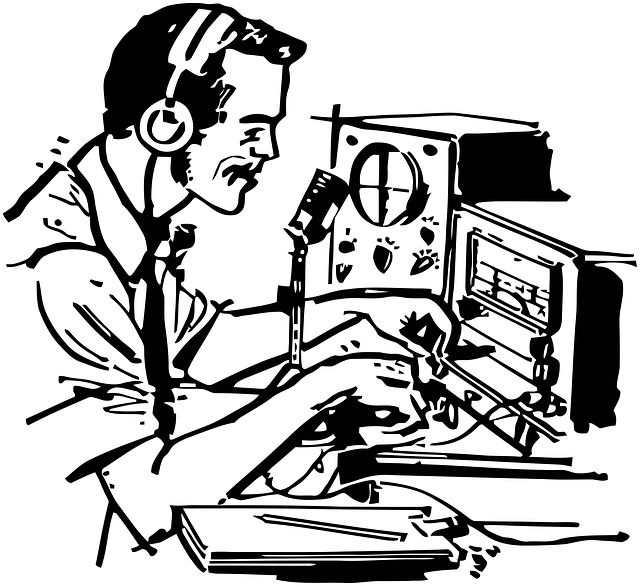
CB Radio Licensing
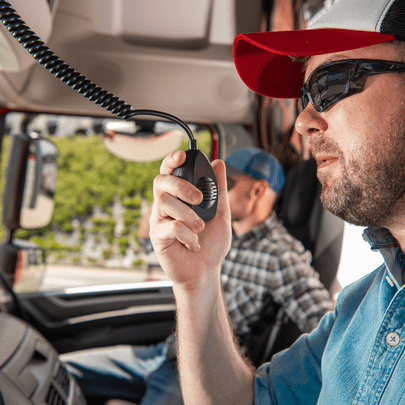
On the other hand CB Radio does not require any license or exam qualification. So CB Radio operating is a bit easier for the people.
HAM radio vs CB: Range and coverage
HAM Radio Range
One of the prime advantage of HAM radio is its versatility. It can be used on wide range of applications such as emergency communication, contesting, experimentation, and more because of it’s widespread community worldwide. So theoretically it has across the globe coverage (depending on operating mode such as digital or internet mode).
CB Radio Range
On the contrary, CB operates on short wave bearing smaller range and that too over limited channel allotted (40-channels to be precise). So when it comes to Range and coverage, CB has greater limitations.
HAM radio vs CB: Operating frequency
HAM Radio Operating frequency
Operating frequency range for HAM radio is 1.8MHz to 1300MHz. As you can see it is spanning over a vast range of frequencies making it more versatile to be used with different modes of communications. This is a big pro on HAM radio’s side.
Check all operating frequencies of Ham radio in USA: click here.
CB Radio Operating frequency
operating range of CB radio is 26MHz-27MHz only with only 40-channels allotted to it. So it tends to get flooded with traffic as number of users increase. And it also has a poor range as it only operates on Short wave communications.
HAM radio vs CB: Modes of Operation
HAM Radio Operating modes
There are several modes of operation for ham radio in the USA, including:
- SSB (Single Sideband) Mode: This mode is commonly used for voice communication and provides better range and clarity compared to other modes. It requires a compatible radio to use.
- CW (Continuous Wave) Mode: This mode uses Morse code for communication and is commonly used for long-distance communication.
- AM (Amplitude Modulation) Mode: This mode is less commonly used for voice communication but is still supported by some radios.
- FM (Frequency Modulation) Mode: This mode is commonly used for local communication and provides good sound quality but has a shorter range compared to other modes.
- Digital Modes: There are several digital modes used in ham radio communication, such as PSK31, RTTY, and FT8. These modes use digital signals to transmit information and can provide better reliability and accuracy compared to voice modes.
CB Radio Operating modes
There are three ways of operation that CB radios can use in America. USA:
1. AM (Amplitude Modulation) Mode AM (Amplitude Modulation) Mode is the most commonly used way of working for radios in CB. It allows voice communication across short or medium distances.
2. The SSB (Single Sideband) Mode The SSB (Single Sideband) Mode is not as popular as AM mode but offers greater clarity and range. The SSB mode is divided into lower and upper sidebands and requires a radio compatible to operate.
3. FM (Frequency Modulation) Mode This mode is not used often in CB radios, and is typically utilized by governments and commercial organizations. FM mode is of high-quality sound, however it has a smaller range in comparison with AM or SSB modes.
HAM radio vs CB: Equipment cost
HAM Radio Equipment cost
Setting up HAM Radio station can be little costlier compared to CB radio.
The primary cost to set up an Ham Radio station is the purchase of an transceiver. A basic transceiver could be priced between $100 and $300 for a mid-range one, while a high-end transceiver could cost anywhere from $500 to $1000.
If you’re dedicated to their hobby, the best transceivers could cost up to 2000 dollars or higher. Apart from an transceiver, it is also require an antenna that could vary from a basic wiring antenna or a complicated an antenna that is directional. An antenna’s cost could range from $50 to several hundred dollars.
Recommended Handheld Ham radio updated 2025
Here a good handheld handheld Ham radio recommended for beginners.
- – Powerful 8W dual-band handheld radio
- – Complete set with 2 rechargeable 2100mAh batteries, earpiece, and programming cable
- – Supports VHF (136-174MHz) and UHF (400-520MHz) bands
- – User-friendly design with durable construction
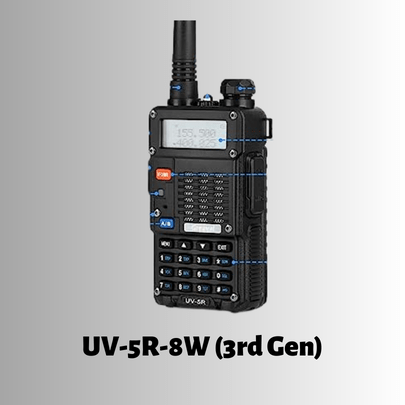
No products found.
CB Radio Equipment cost
CB radio equipment costs comparatively less than HAM radio.
The price of CB radios can differ depending on the features and quality that the radio equipment comes with. In the majority of cases, a basic CB radio that has no extra features can be priced between $50 and $100.
Advanced CB radios that include extra features like weather alerts, built-in microphones along with Bluetooth connectivity can be priced between $100 and $300. Alongside the price of the radio, additional equipment like antennas, cables and mount kits may be needed that can make a difference to the total price.
An antenna can be priced between $20 and $100, based on quality and type.
In general, the price of radio equipment CB can vary from $100-$500, based on the equipment required and the features you want.
Recommended CB radio updated 2025
Here is a recommendation who are looking for a well performing CB radio.
- – Professional-grade CB radio
- – Instant access to Channel 9 for emergencies
- – Powerful 4-watt output with full 40 channels
- – Easy operation, adjustable receiver, and dual-mode AM/FM access
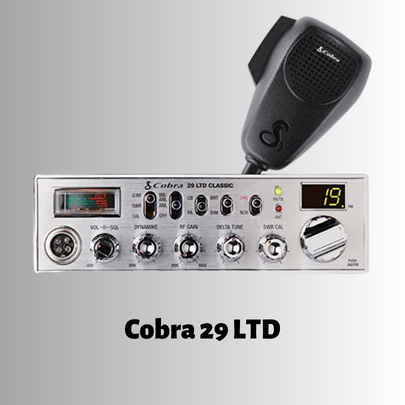
No products found.
HAM radio vs CB: Pros and Cons
HAM RADIO PROS & CONS
| Pros | Cons |
|---|---|
| Wide Range | License required |
| Versatile | Costlier |
| Vast Community | Some operating modes are difficult |
| Wide Spectrum | Timely license renewal required |
CB RADIO PROS & CONS
| Pros | Cons |
|---|---|
| No License required | Limited Range |
| Cheaper | Non versatile |
| Operating modes are simpler to execute | Limited users |
| No license renewals required | Narrow Spectrum |
HAM radio vs CB: Which one is right for you in 2025?
Whenever you’re given choice to go for one of these two choices i.e. HAM radio vs CB radio, Think for a while regarding your requirements and goals first.
If you’re in need of an versatile communications system which can be handy in variety of applications, and you dont have too much of budget constrains, then the ham radio or amateur radio may be the ideal option for you.
However, if you’re short in budget and you’re searching for a cheaper and simple technology for short-range communications, then CB radio may be sufficient for you.
The bottom line is that both HAM radio and CB radio have their distinct applications. The best way to decide in the battle of ham radio vs cb is to conduct your own study and get your hand on both systems for a while and then decide.
Other blog posts from the category:
- Ham Radio SWR Meter || How to Choose & Use 1 in 2025
- Ham Radio vs CB vs Walkie Talkie: Choose the Right one USA 2024
- 03 Best GMRS radios for Beginners
- 5 Best Ham Radio Microphones for beginners
- Ham radio base station: Best choices to start with
- Ham Radio Desk: Best Ideas & Top picks 2023
- Ham radio Headsets || Best choices in 2023
- Conquer the Trails: 6 Best Jeep Ham Radios || Updated 2025
- Explore 11+ Best Ham Radio Backpacks: USA 2023
- 7 Best Mobile ham radio for Beginners USA 2023
